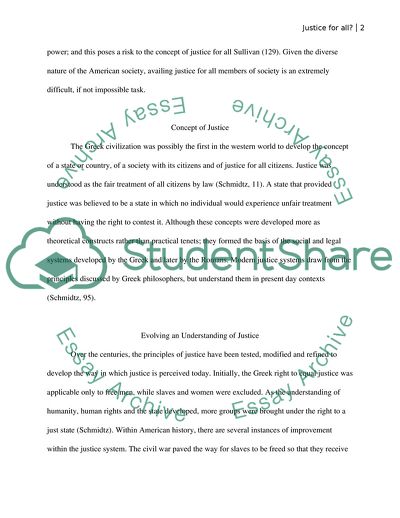Cite this document
(Is Justice Possible for All in America Essay Example | Topics and Well Written Essays - 1500 words - 1, n.d.)
Is Justice Possible for All in America Essay Example | Topics and Well Written Essays - 1500 words - 1. https://studentshare.org/philosophy/1770832-is-justice-for-all-possible-in-america
Is Justice Possible for All in America Essay Example | Topics and Well Written Essays - 1500 words - 1. https://studentshare.org/philosophy/1770832-is-justice-for-all-possible-in-america
(Is Justice Possible for All in America Essay Example | Topics and Well Written Essays - 1500 Words - 1)
Is Justice Possible for All in America Essay Example | Topics and Well Written Essays - 1500 Words - 1. https://studentshare.org/philosophy/1770832-is-justice-for-all-possible-in-america.
Is Justice Possible for All in America Essay Example | Topics and Well Written Essays - 1500 Words - 1. https://studentshare.org/philosophy/1770832-is-justice-for-all-possible-in-america.
“Is Justice Possible for All in America Essay Example | Topics and Well Written Essays - 1500 Words - 1”. https://studentshare.org/philosophy/1770832-is-justice-for-all-possible-in-america.


